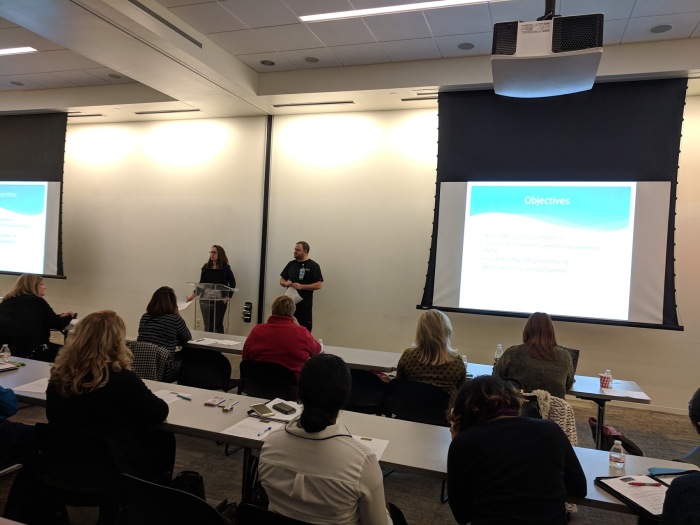Participants at the November’s IPDCC workshop were treated to an excellent discussion of LGBTQ issues in long term care. Most of the morning was dedicated to cultural competency training. Lane Bannister of the Eskenazi Transgender Health and Wellness Program, and Rebecca Critser, Indiana Legal Services attorney in the LGBT Law Project, helped us understand the wide variety of gender issues that may come up in long term care. We learned how a community could become more welcoming by reviewing policies and training staff how to respect every person’s choices and preferences.

Their presentation was followed by Brenda Buroker and Jan Kulik from the Indiana State Department of Health Long Term Care Division explaining how several of the federal regulations support learning about and accommodating a resident’s individual preferences, preventing staff to resident and resident to resident abuse, and requiring facilities to properly train staff to meet the individual needs of each resident in their care.
Finally, Donata Barnes and Nicholas Pennington from CICOA offered a list of local and national resources that communities could use to obtain more information and training opportunities.
Feedback from participants showed that this is an important topic that has not received enough attention in long term care. They were grateful for the opportunity and suggested that this kind of training be offered on a regular basis. Look for this to be addressed in future workshops.




